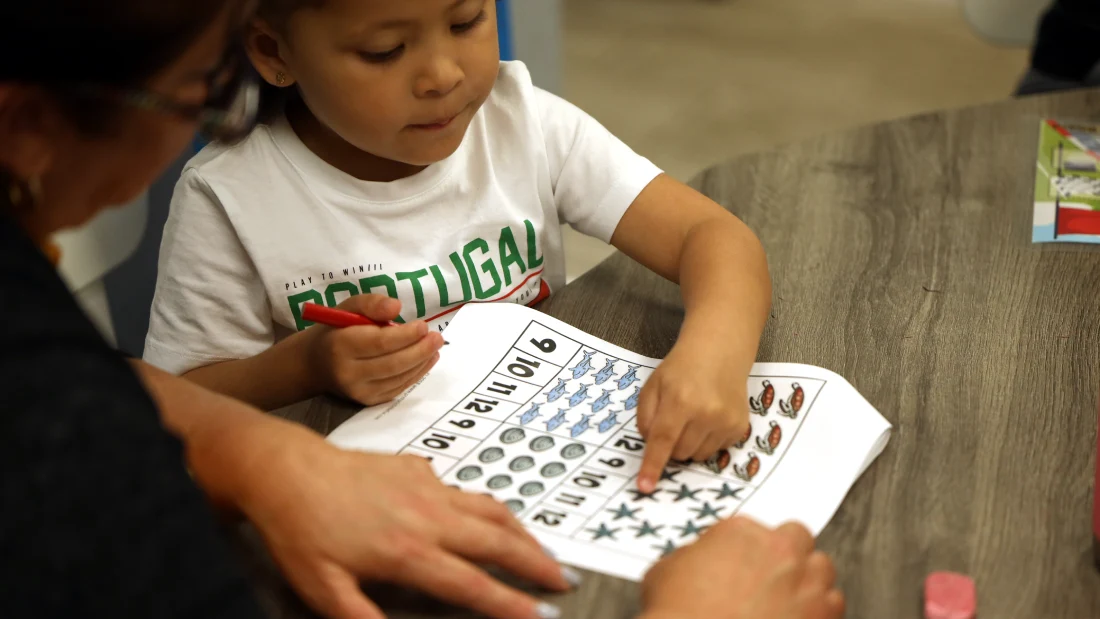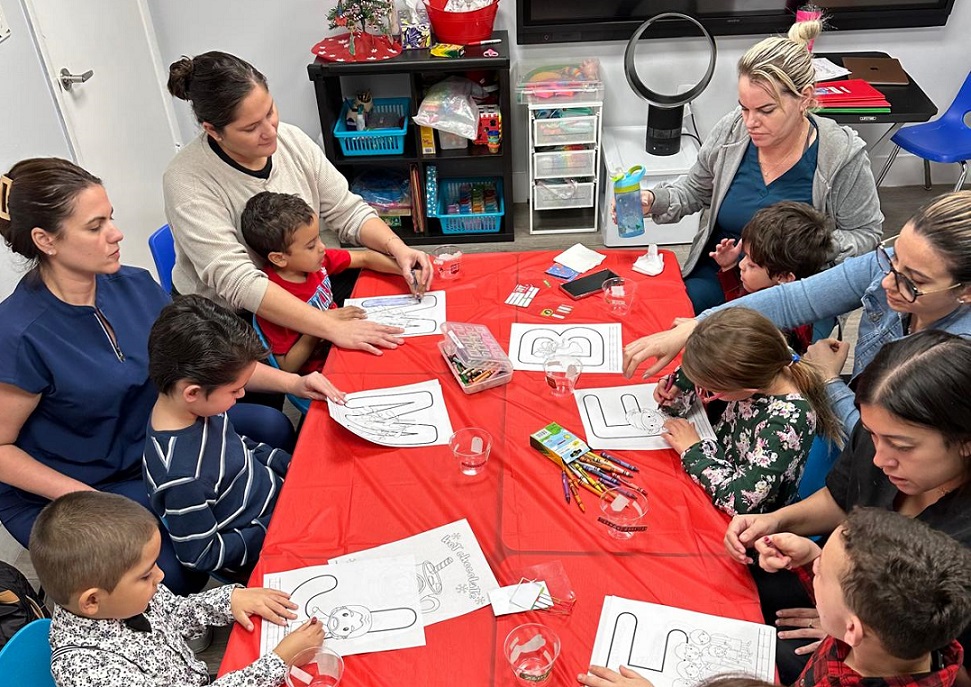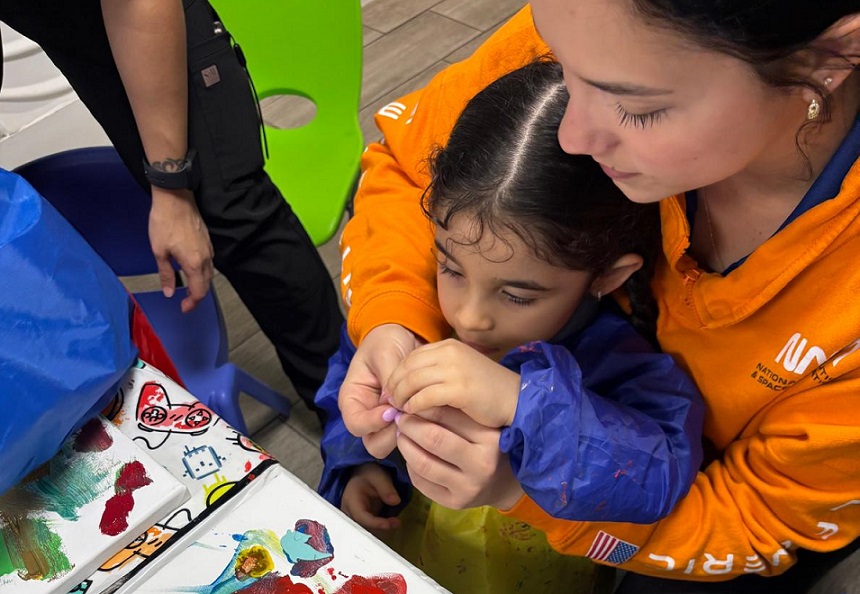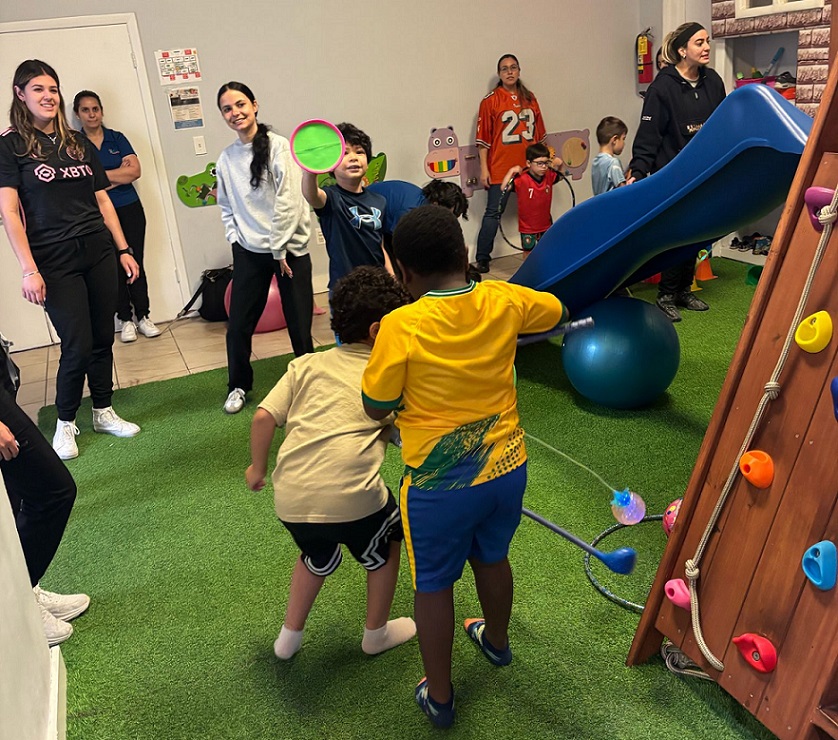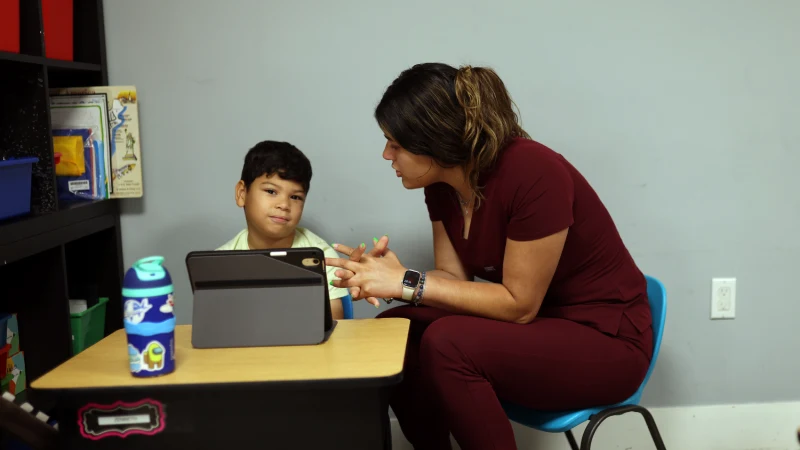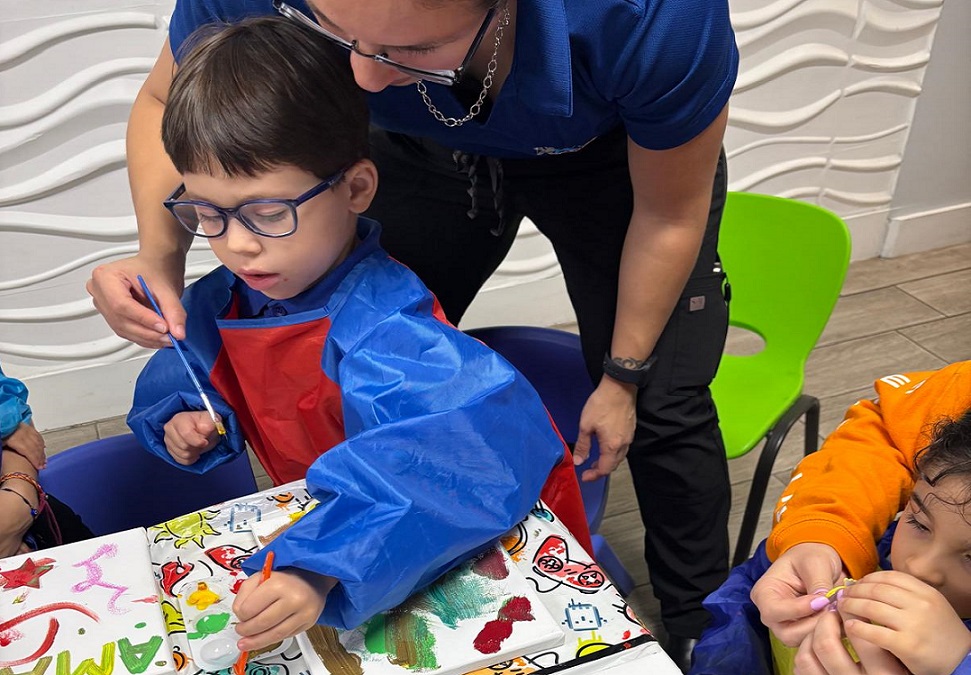Helping children with autism develop social skills can be both rewarding and enjoyable. Play isn’t just about having fun—it’s a powerful tool for learning, growth, and connection. The right social skills activities can enhance communication, build confidence, and help children navigate social scenarios naturally and engagingly.
In this post, we’ll explore ten of the best autism-friendly games designed to strengthen social interactions. Find useful strategies and get expert tips for adapting games to create an inclusive and autism-friendly environment. Keep reading for professional insights on making social play both meaningful and fun!
Why Social Skills Activities Matter for Autistic Children
Structured play is essential for a child’s cognitive and social development. For autistic children, well-planned social activities can make a significant difference in emotional regulation, peer interactions, and communication skills.
Here are some key benefits of games for autistic kids:
- Improved Communication – Encourages both verbal and non-verbal communication, helping children articulate thoughts, needs, and emotions.
- Enhanced Empathy – Supports emotional recognition in themselves and others, strengthening relationships.
- Cognitive Growth – Stimulates problem-solving, reasoning, and critical thinking in an engaging way.
- Behavioral Regulation – Creates a structured environment that promotes self-control, flexibility, and adaptability.
- Stronger Relationships – Helps children build deeper connections with family, friends, and peers.
Now, let’s explore ten interactive and educational games that can support social skill development.
Types of Play and How They Can Foster Social Skills
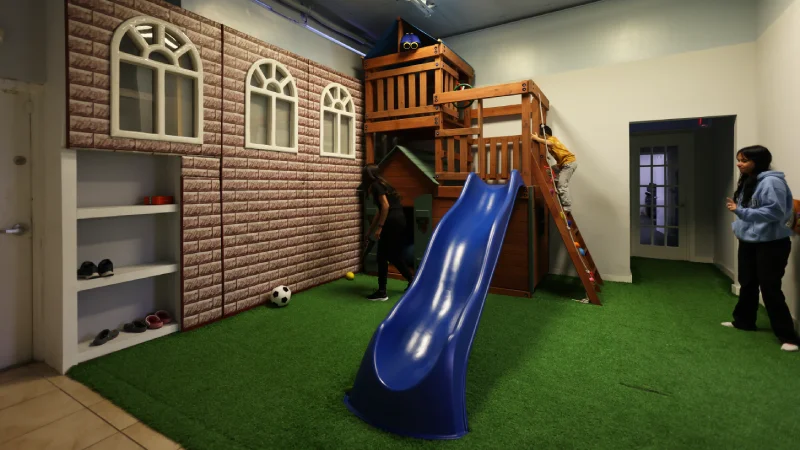
When is about children’s learning and growth, play is an essential tool. Actually, different types of play activities cater to various developmental needs and can foster important social skills:
- Structured Play: Activities with clear goals or rules, like puzzles and building blocks, help autistic children improve problem-solving, follow instructions, and practice taking turns, which enhances their social interaction skills.
- Unstructured play: Sensory and role-playing games, help children show their creativity. It also allows them to make decisions on their own. This type of play promotes self-expression and social exploration.
- Physical Play: Movement-based activities like sports or obstacle courses help reduce stress, while also encouraging teamwork and cooperation in group settings.
Autism-friendly Games for Building Social Skills
Play is often considered the “work” of childhood—a time for building friendships, developing communication skills, and exploring the world through fun, interactive experiences. Games and activities for autistic kids are just as essential in fostering social development.
Let’s explore 10 engaging activities that can help your child navigate complex social scenarios with confidence and ease.
1. Imitation Games
Simple games like clapping, waving, or making facial expressions encourage children to observe and engage with others. These activities help autistic children playfully practice fundamental social skills.
2. Emotion Matching Games
Using flashcards or interactive apps with different facial expressions, children match faces to the correct emotions. This helps them recognize emotions in themselves and others, fostering emotional awareness and empathy.
3. Social Story Role-Play
Social stories are short, descriptive narratives that help children navigate common social situations. Acting out these scenarios—such as greeting someone, taking turns, or handling disappointment—reinforces expected behaviors in a safe and structured way.
4. Turn-Taking Board Games
Games like Candy Land, Chutes and Ladders, and Uno teach patience, turn-taking, and rule-following. These structured activities help autistic children understand game dynamics and develop cooperative play skills.
5. Sensory Play
Sensory bins filled with rice, beans, or kinetic sand provide a calming yet engaging experience that encourages social interaction. Shared sensory play fosters cooperation, joint attention, and parallel play. You can also create sensory boxes with different textures, colors, and sounds to help children explore and enjoy pleasant sensations.
6. Simon Says
This classic game promotes listening skills, following directions, and impulse control. Adding variations like “Simon says, show a happy face” helps children practice interactively recognizing emotions and social cues.
7. Role-Playing Scenarios
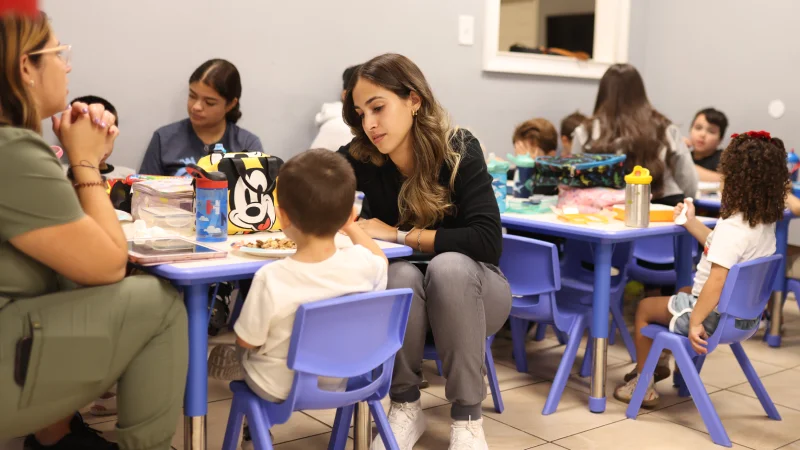
Set up pretend-play situations where children practice real-life social interactions, such as ordering food at a restaurant, introducing themselves, or asking for help. This builds confidence in communication and social engagement.
8. Building and Construction Activities
Building with LEGO, blocks, or puzzles encourages teamwork, patience, and problem-solving. Working together to complete a structure fosters cooperation and turn-taking in a fun and rewarding setting.
9. Music and Movement Games
Games like Freeze Dance or Musical Chairs improve motor skills, rhythm, and social engagement. Playing simple instruments like drums or maracas can help children express themselves and participate in group activities.
10. Outdoor Obstacle Courses
Creating an obstacle course with jumping, crawling, and balancing stations helps improve motor skills while encouraging teamwork. Having children cheer for each other or take turns builds positive social interactions.
Group Skills Games for Kids with Autism
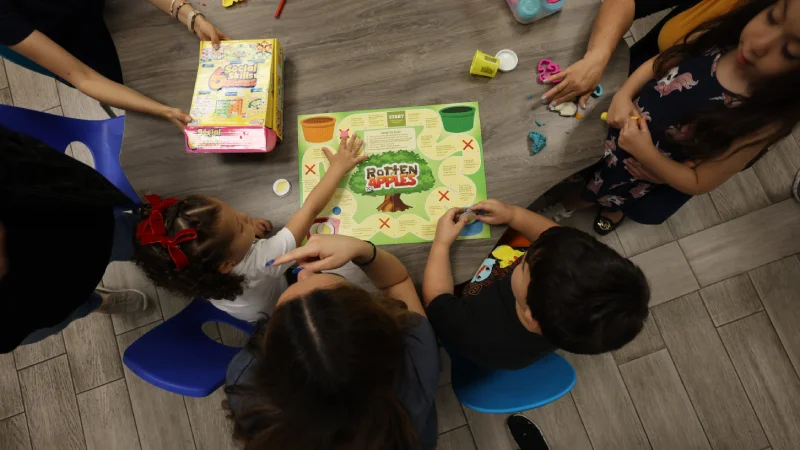
Beyond structured activities, everyday social interactions help autistic children develop communication, teamwork, and cooperation skills. Group-based play provides a natural and engaging way to reinforce these abilities.
Interactive Playdates
Structured playdates offer a safe, predictable environment for children to practice social interactions. Parents can support these experiences by choosing familiar settings, introducing simple cooperative games, and gradually increasing social complexity.
Group Sports Participation
Team sports like soccer, martial arts, or swimming help children develop cooperation, communication, and rule-following skills in a structured and engaging way. Choosing activities that match a child’s interests enhances participation and enjoyment.
Using Autism Toys for Group Focus
Fidget toys like spinners, pop-its, stress balls, and magnetic balls can be powerful tools in group settings. These autism toys support self-regulation by providing a calming, sensory outlet that helps kids stay focused and engaged during group activities. Additionally, they can be integrated into cooperative activities, like imitating movements or completing shared tasks, making these toys a valuable tool for enhancing social engagement.
Adapting Games to Support Social Development
While play is essential for all children, autistic children may need intentional guidance and adaptations to make games more accessible and enjoyable. By modifying interactive autism activities to fit each child’s needs, caregivers and educators can create inclusive and engaging experiences that encourage participation and social growth.
Below are effective strategies for adapting social scenarios for kids to support better gameplay and social skill development.
How to Adapt Games for Autistic Kids
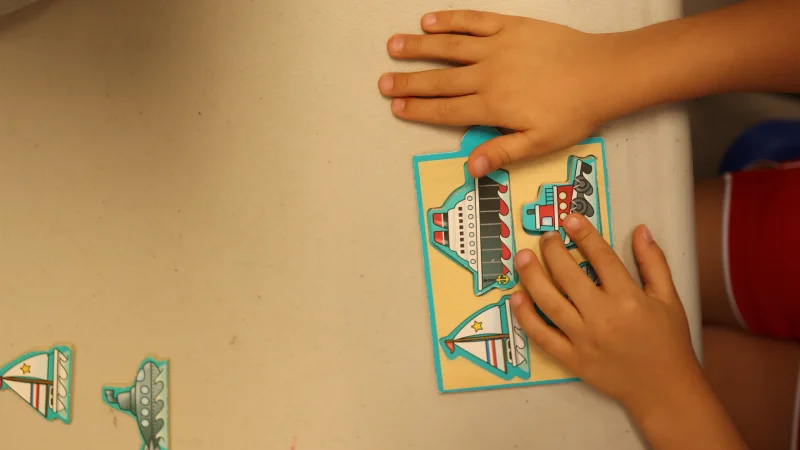
Every child is unique, and the best way to modify a game depends on their individual needs, the type of game being played, and its intended social benefits. The following strategies can help make games for autistic kids more inclusive and effective:
1. Prepare the Child in Advance
Autistic children often feel more comfortable in structured environments where they know what to expect. Before introducing a new game, take time to explain the activity, demonstrate how it works, and outline the rules. Using visual aids, social stories, or step-by-step instructions can make the process clearer and reduce anxiety.
2. Set Clear Expectations
Before starting, ensure the child understands their role in the game and what is expected of them. Breaking down instructions into small, manageable steps can improve comprehension and engagement.
3. Encourage Expression
Children should feel comfortable expressing their thoughts, concerns, or questions during the game. Allowing them to communicate through words, gestures, or visual supports fosters a sense of security and keeps them actively engaged.
4. Allow Practice Time
Giving children an opportunity to practice a game before joining a group can build confidence and help them develop the necessary social skills at their own pace. Rehearsing specific actions, such as taking turns or responding to a social cue, makes participation more enjoyable and successful.
By making these changes, caregivers and educators can make autism activities inclusive and engaging. This helps children improve their social skills in a fun and supportive setting.
Looking for Expert Support? Koala ABA & Learning Centers Can Help

Supporting an autistic child through play requires a thoughtful and professional approach. At Koala ABA & Learning Centers, we offer Applied Behavior Analysis (ABA) Therapy to help children develop essential skills in a structured, supportive environment.
Personalized ABA Therapy
Our ABA Therapy breaks down complex behaviors into manageable steps, helping children learn and adapt more effectively. We focus on daily living skills, social interactions, and behavioral growth, empowering children to build confidence and independence.
Occupational Therapy for Development
In addition to ABA Therapy, we offer Occupational Therapy to support cognitive, physical, and social growth. Through structured play, we help children develop essential skills like dressing, eating, and personal hygiene while improving motor coordination and social interactions.
Take the Next Step
At Koala ABA & Learning Centers, we are committed to helping autistic children lead richer, more fulfilling lives. Contact us today to learn how we can support your child’s journey toward growth and independence.
Final Thoughts
Social skill development is a journey, but with the right games, activities, and support, autistic children can thrive. Whether through structured play, interactive experiences, or professional therapy, every child deserves the chance to connect, grow, and enjoy meaningful interactions.
By incorporating these activities into daily routines and creating a supportive environment, parents and caregivers can help children develop the confidence and skills they need to navigate the world socially.
Want more resources? Stay connected for more tips and strategies on supporting autistic children through play and interactive learning.

